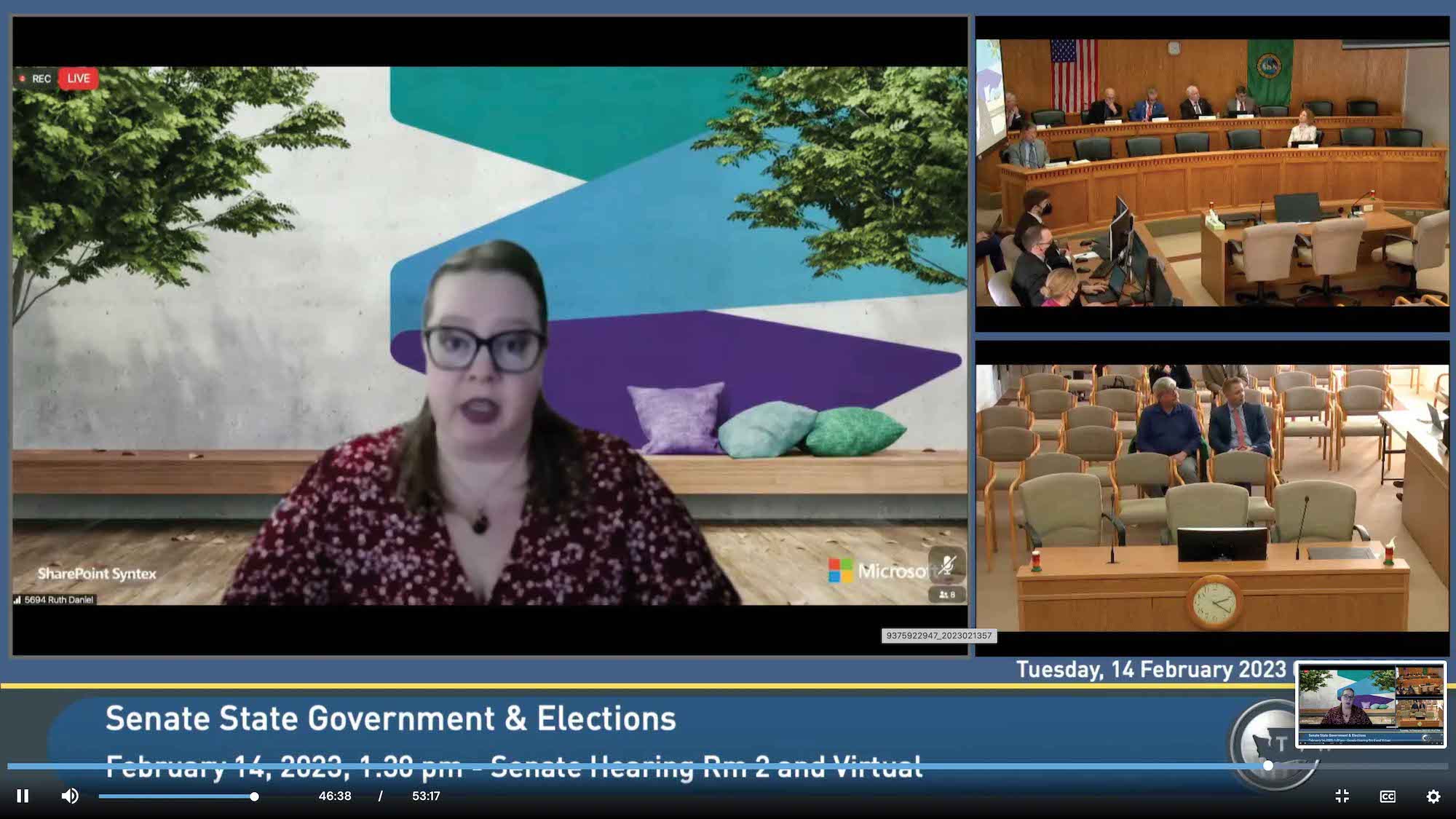PROTEC17 staff and members from the Washington State Department of Transportation (WSDOT), the Department of Licensing (DOL), and the Washington State Patrol (WSP) travelled to Olympia – both in-person and virtually – on Feb. 14 to testify for two companion bills that would potentially help achieve better market wages for state members during negotiations.
Because of the Washington State Office of Financial Management’s (OFM) interpretation of the statute governing employee wages (RCW 41.06.152), negotiating over market wage adjustments with the State is a challenge. The State relies almost primarily on retention data to justify any market wage increases, leading to wages in dozens and dozens of job classifications – many of which are occupied by women and Black, Indigenous, and people of color – drastically behind market rates. At the bargaining table, OFM negotiators use the statute as a shield to deny fair and equitable increases and routinely deny arguments for better wages because the turnover doesn’t meet the criteria, as written.
According to the State’s own salary survey – which they do not use due to the statute language – wages in some classifications are up to 25 percent behind other comparable municipal jobs, and up to 40 percent behind comparable private sector positions.
At WSDOT, managers are currently offering salaries at the top of the wage scale just to get people in the door. Recently, both the Bellevue and Wenatchee WSP Communications Offices (where 911 operators work) were closed due to the agency’s inability to recruit and retain qualified staff.
In an attempt to remedy this hurdle and to get State members the wages they deserve, PROTEC17 crafted language and approached Sen. Sam Hunt, among others, who agreed to be a sponsor for a bill that would allow the State to utlize other metrics when making wage decisions. Other unions representing State workers, including the Washington State Federation of State Employees, and the Washington Public Employees Association also signed on in support.
The resulting bills – House Bill 1774 and Senate Bill 5694 – were heard in their respective committees on Feb. 14, with hundreds of supporters signing in ‘Pro’ through the legislature’s virtual process, and many State employees providing live testimony during the hearings, including PROTEC17 members Brian Brannies (WSDOT), Ruth Daniel (DOL), Daniel Jones (WSDOT), Faith Schuler (WSDOT), and Mindi Mezek, a former member who left her position at WSP due to low wages.
In her testimony, Ruth Daniel said: “The state needs to take a more proactive role in making wage adjustment determinations so we can attract and keep the talented and dedicated employees that the residents of our state deserve.”
Sarah Lorenzini, PROTEC17 Union Representative and Lead Negotiator who tesified in support of the Senate bill, said: “This reactive process needs to be reformed to be more in-line with a very competitive market and with the State’s own Diversity, Equity, and Inclusion goals.”
While the bill will likely not make it through to the end of session, a fiscal note has been filed, setting the stage for passage of similar legislation during next year’s budget session.
You can track this and other PROTEC17 legislative priorities on our Political Action page of our website: protec17.org/political-action. You can also reach out to Political Director Brandon Hersey () if you have questions, or want to help provide testimony in the future.


